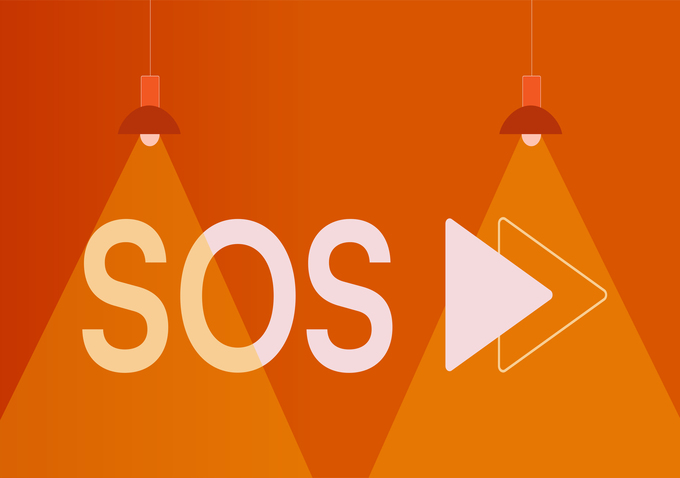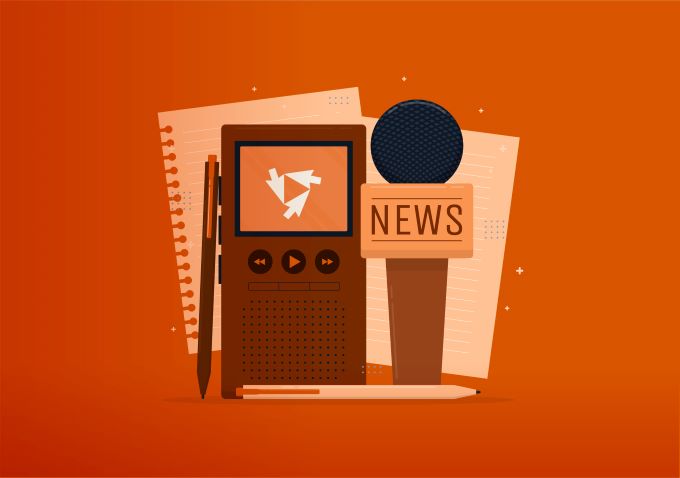

Don’t mention the pandemic!
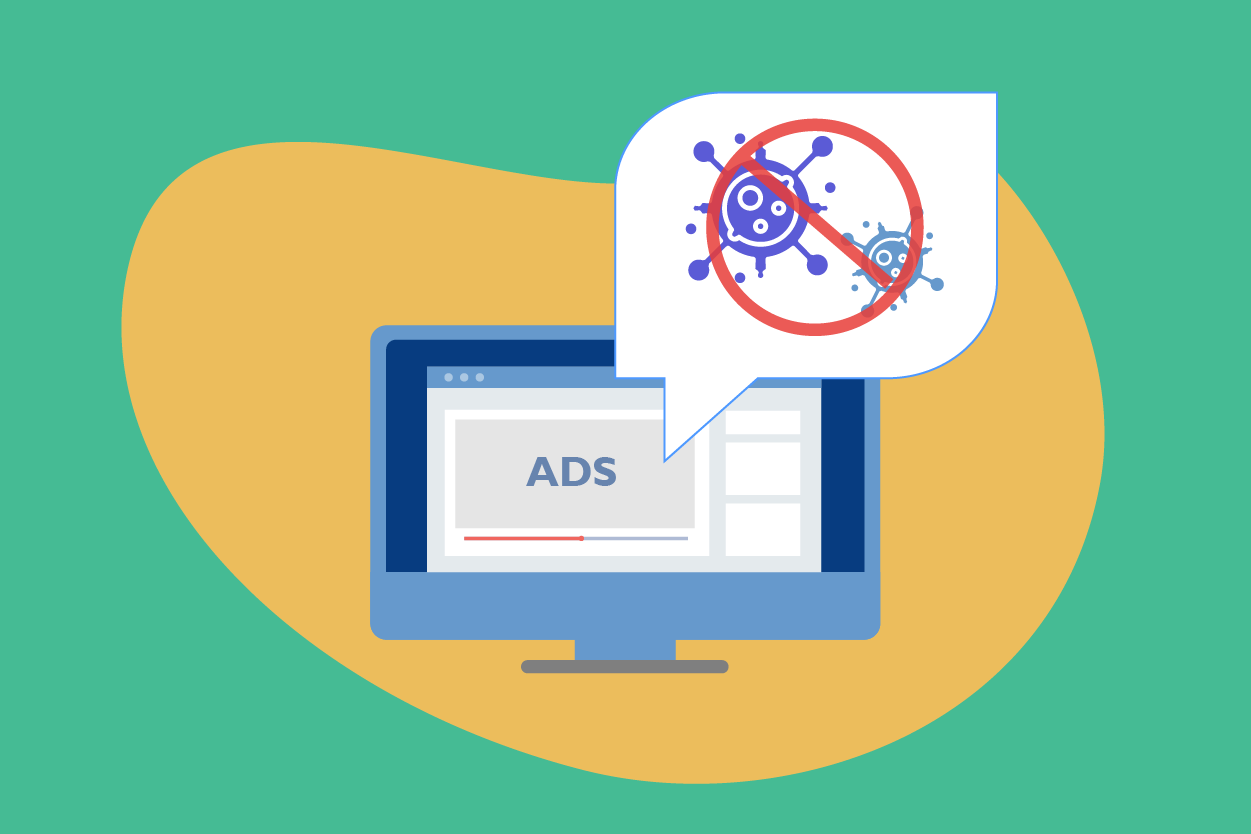
With the current situation, we all need to be a little more careful when it comes to wording our ads.
“Fake news”. Everyone has heard of the term, particularly since it was used by President Donald Trump during and after his presidential campaign. While Trump was referring to negative press of himself, “fake news” today largely refers to the spread of misinformation.
In the digital era, people are getting their information faster with the help of social media. And it’s not always credible.
Since COVID, fake news has spread around the world — maybe faster than the virus itself? Fake news of its origins, what causes it, how it can spread, and worst of all, how to prevent getting the virus — makes these articles very dangerous. A Reuters survey found that “people are more likely to share bad advice on social media than good advice from trusted sources”, which is why fake news makes disease outbreaks worse.
It is no wonder that on March 17 2020, Google, YouTube, Facebook, LinkedIn, Twitter, Microsoft and Reddit issued a joint statement, pledging to work together to combat misinformation.

The effect on advertising
The spread of misinformation proved to be too difficult to combat, resulting in social platforms like Facebook, Google and LinkedIn to issue some form of ban on COVID-19 related digital ads. Currently, only government health organisations promoting public service announcements about health and safety are allowed to run.
Google has updated its sensitive events policy to include COVID-19 restrictions, prohibiting content that seeks to capitalise on the pandemic or that that lacks reasonable sensitivity towards this global health crisis.
Automated algorithms have been put into place to restrict ads from running on certain keywords regardless of the ad or site content. This means the mere mention of the virus or any of its related terms like “masks” or “social distancing” will be labeled a “Sensitive Event” and will not be allowed.
To highlight the very restrictive means of enforcement, here’s an example.
We created nine campaigns on the Google Ad Network to advertise our weekly program, The Content Show on YouTube. The videos are typically 30-minute conversations discussing digital marketing, media, webinars, mobile journalism, podcast tips, etc.
All nine episodes were rejected due to sporadic mentions of ‘COVID-19’. This is because of Google’s pledge to maintain a safe advertising ecosystem, which has led to it taking necessary measures to “prevent abuse related to coronavirus disease”.
In another example, we created an ad for a client on productivity tips while working from home. It has no mention of COVID-19 or any scenes involving the use of masks that would suggest any relation to the virus, but shares 5 tips on working from home like staying productive and staying away from the fridge, tv and comfy sofa during working hours.
The ad (left) was ultimately rejected, mainly due to the term “social distancing” even though it was used to remind viewers to “stay away” from the fridge, tv and sofa during working hours.
We revised the ad (right) to navigate this, both in our copy and creative, and are currently waiting on the client’s approval to run the ad.
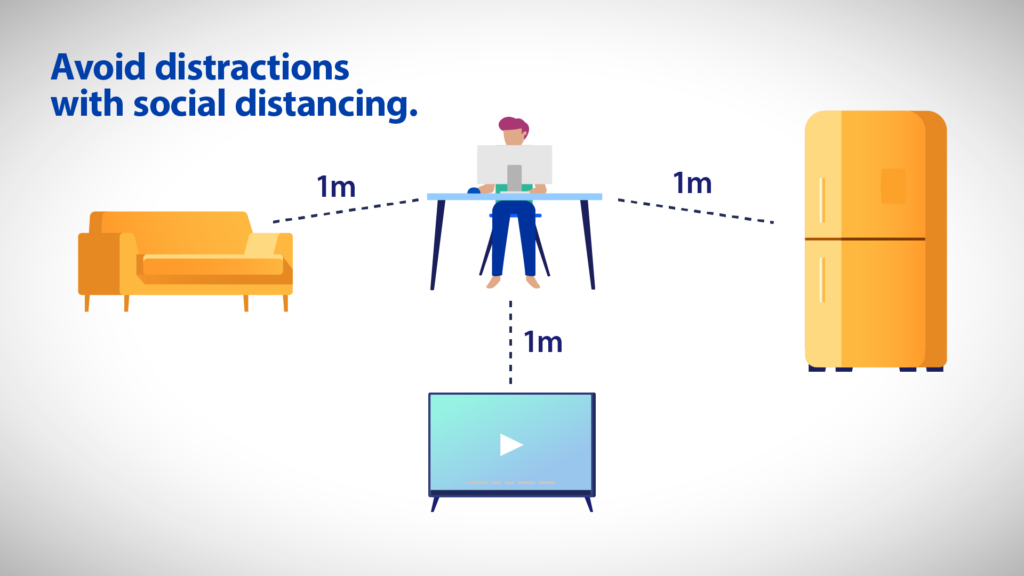
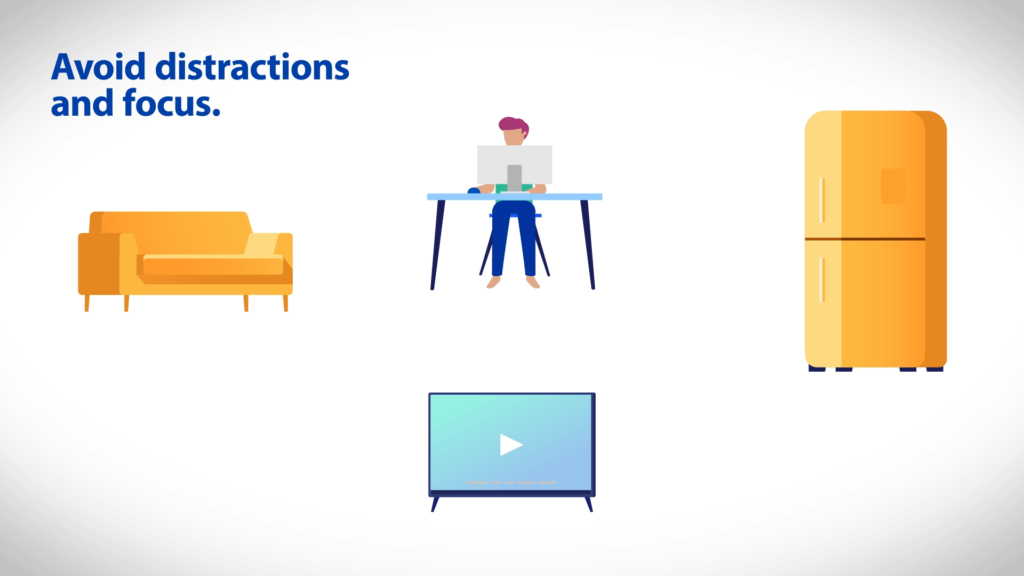
Despite the content focusing mainly on helpful information and advice for media brands to navigate the world of marketing during this period, the tight leash Google placed through its sensitive events policy has created challenges for trusted content creators.
With Facebook, the revised advertising policies have temporarily banned ads that “commercially promote certain medical supplies and other high-demand products related to COVID-19.” These include:
- Medical face masks
- Hand sanitisers and surface disinfecting wipes
- COVID-19 test kits
- And even products that include any of the prohibited products above as a free gifts
This means any ads that include the masks shown below are prohibited and would be rejected.
As of June 10, 2020, Facebook has lifted certain restrictions on their Controversial Content ads policy, allowing ads to promote non-medical masks with some restrictions. Non medical masks are masks that have been handmade, custom made, are reusable or created out of household fabrics like cotton, cloth, denim, etc.
The restrictions for this include any direct or implied prevention claims or overstating the impact of non-medical masks on health or safety outcomes.
In addition, since COVID-19, Facebook has also banned ads that:
- Indicate urgency for supplies and products related to COVID-19
- Incite fear to promote supplies or products related to COVID-19
- Claim prevention of COVID-19
But with such stringent policies in place, one wonders why Facebook didn’t take action against any of Trump’s controversial posts or ads earlier. Some of these include the instance when he posted that “when the looting starts, the shooting starts”, threatening protestors with police brutality amid racial unrest across the country; and when he created an ad for his re-election campaign that accused former Vice President Joe Biden of using his power to influence Ukraine to benefit his son — without any evidence.
In fact, they’ve only just banned one Trump ad on the grounds of “violating (their) policy of organised hate” because it used an upside-down triangle, one identical to “that used by the Nazi regime to classify political prisoners in concentration camps.”
LinkedIn has taken a different approach in combating misinformation related to coronavirus. The social media platform has put together a global team of 65 experienced journalists to curate news and perspectives about the pandemic from trusted sources. The team spotlights this coverage in a special report on the LinkedIn homepage. This means when LinkedIn users search for coronavirus-related terms or hashtags, they will see trusted information modules at the top of the results page.
LinkedIn’s Ads Policies also prohibits ads that:
- Capitalise on the pandemic
- Exploit the crisis for commercial gain
- Spread misinformation, and
- Pose a danger to the user’s safety
Company pages that improperly sell medical supplies and solutions are also flagged and removed. The policies in place are being applied to block ads related directly to COVID-19. In certain instances, advertising related to the pandemic on LinkedIn is only allowed from trusted sources.
Building an ad now? Here’s what you need to know
These new ad rules for COVID-19 have made it exceptionally difficult for content marketers to distribute helpful content, but not all hope is lost.
To avoid being flagged, you just need to revisit your keywords, ad-creatives and adjust images and videos to make sure of the following:
- Avoid any terms that can be related to COVID-19 such as:
- Virus
- Coronavirus
- Mask
- Social distance
- Social distancing
- COVID
- COVID-19
- Pandemic
- Quarantine
- Lockdown
- Keep in mind that there are currently over 7 million unique pages that contain COVID-related keywords: “COVID”, “COVID19″, “COVID-19”, “COVID 19″, “coronavirus”, “corona virus”, “pandemic”, “quarantine”. Most advertisers have chosen to block pages containing COVID-related keywords, which means brands are blocked from accessing impressions on pages that contain one or more instances of the word. With that in mind, if you’re looking for a quick and easy solution right now – don’t mention the pandemic!
In the event that your ad is flagged, don’t worry! Just double-check that you’ve avoided any prohibited words or visuals, and request for another review. This is possible with all social platforms.
Read more from Click2View:
- Have you ever wondered, just what is content marketing? We cover this for you.
- New to digital content marketing? As an SME, here’s your strategy.
- With DIY tools, videos don’t seem so hard after all.
Sign up to our newsletter for more.
Click2View is Southeast Asia’s premiere full-service independent B2B content marketing agency servicing clients like Microsoft, Google, Visa, Prudential, and the Lee Kuan Yew School of Public Policy.





